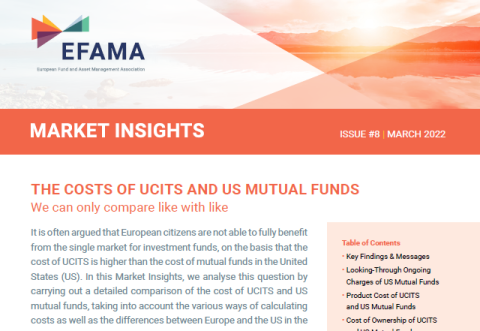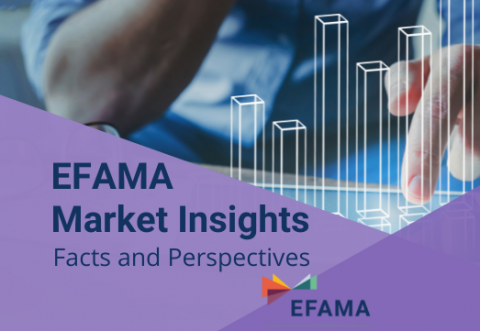EU Fund regulation
The EU fund product landscape is deep, diverse and dynamic. Since the birth of the UCITS framework in 1985, European institutions have progressively refined it into a global “gold standard”, one that successfully balances strict regulatory requirements with the flexibility required by manager to meet evolving client demands. The successful evolution of UCITS was followed by the creation of alternative investment funds (AIFs) under the 2011 AIFM Directive, adding a second important pillar to EU fund/manager regulation. Building on this second pillar are further ambitious EU fund products, such as EUSEFs, EUVECAs and ELTIFs. EFAMA has helped guide all of these key regulatory developments, informing policymakers and regulators on their main merits and drawbacks, while also keeping a close eye on their respective review initiatives.
EFAMA strongly supports a fundamental review to the ELTIF regime, in view of broadening its eligible investment universe and adapting it to better meet retail investor needs. We are also closely monitoring the review of the AIFM Directive from a product regulation standpoint, including possible spillover effects on the UCITS Directive requirements. Further work involves keeping pace with relevant ESMA initiatives, such as the work around the Common Supervisory Action on costs and fees for UCITS.
Policy Recommendations for the Next European Commission
EFAMA responds to ESMA Consultation on Liquidity Stress Testing in UCITS and AIFs
EFAMA response to ESMA's CP on integrating sustainability risks & factors in the UCITS Direcive & AIFMD
EFAMA publishes 2021 industry Fact Book - Report highlights key developments in the European fund industry in 2020
EFAMA has released its 2021 industry Fact Book.
The 2021 Fact Book provides an in-depth analysis of trends in the European fund industry, an extensive overview of the regulatory developments across 29 European countries and a wealth of data.
EFAMA: No need for fundamental reform of EU Money Market Funds Regulation
The European Fund and Asset Management Association (EFAMA) has today published its response to the ESMA consultation on the legislative review of the EU Money Market Fund Regulation (MMFR).
3 questions to Miranda Seath on the European fund classification
Q #1 What is the European Fund Classification (EFC) and why is it different from other classifications?
The mission at the heart of our work on the European Fund Classification scheme is to help investors, and the wider European funds industry, to find and compare similar fund peer groups in a meaningful way. This mission is particularly relevant in an era of rising cross-border fund sales because the EFC enables investors and their advisers to compare funds across different European jurisdictions consistently.
The costs of UCITS and US mutual funds | Market Insights | Issue #8
It is often argued that European citizens are not able to fully benefit from the single market for investment funds, on the basis that the cost of UCITS is higher than the cost of mutual funds in the United States (US). In this Market Insights, we analyse this question by carrying out a detailed comparison of the cost of UCITS and US mutual funds, taking into account the various ways of calculating costs as well as the differences between Europe and the US in the way investment funds are distributed.
Asset Management Report 2021
This is our 13th edition of the Asset Management in Europe report, which provides an in-depth analysis of recent trends in the European asset management industry, focussing on where investment funds and discretionary mandates are managed in Europe.
Fund managers retain only 41% of the total cost paid by retail investors | Market Insights | Issue #6
EFAMA has released its latest Market Insights report titled “Perspective on the costs of UCITS”. The full report breaks down the costs of UCITS, focusing on the fees charged for the different services provided along the investment fund value chain and distinguishing between the product cost for which fund managers are directly responsible, and the































